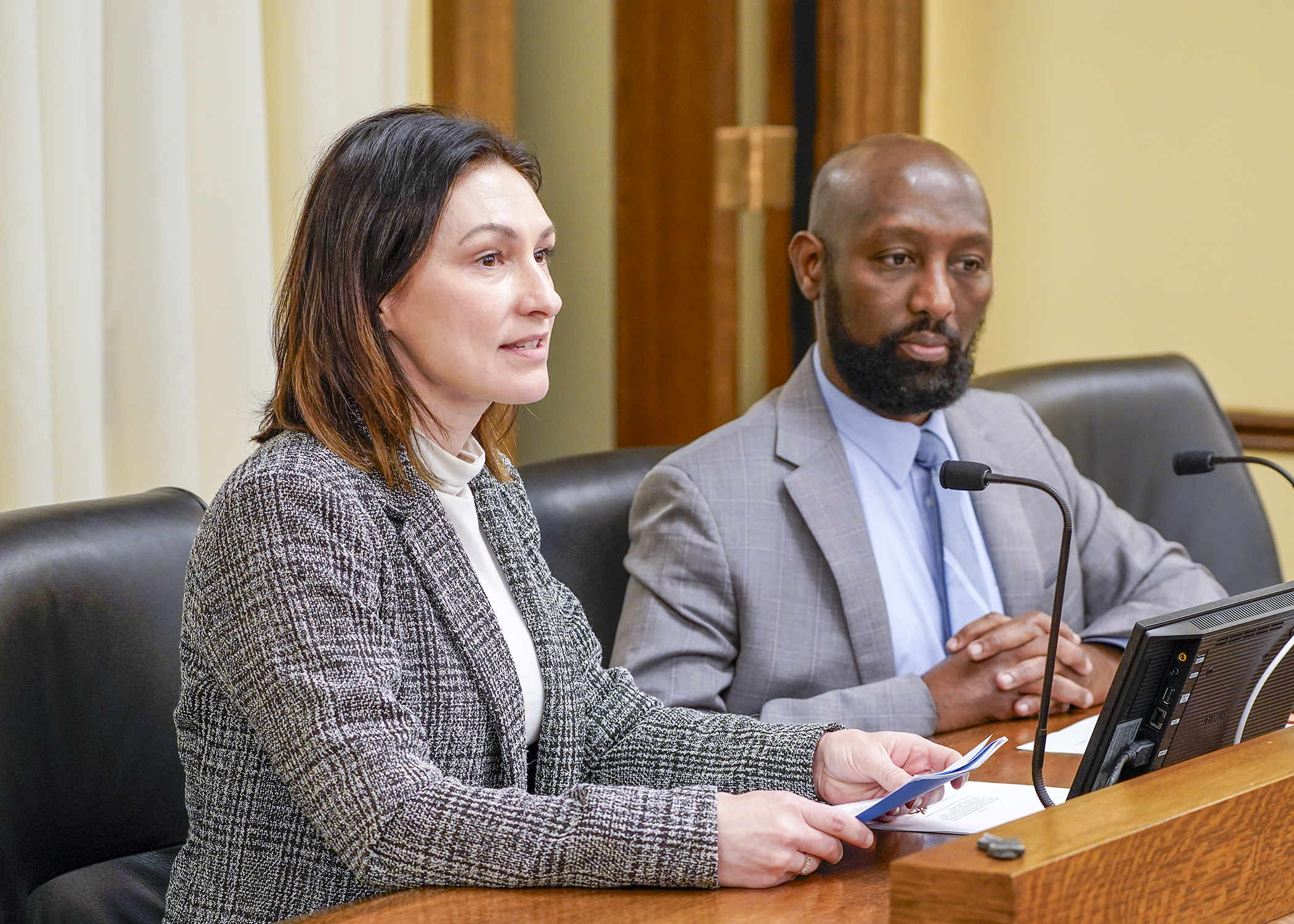House committee digs into who should pay for care evaluation coverage

A health care evaluation is an in-person evaluation to develop, update or review a Medical Assistance recipient's plan of care for home care services, except personal care assistance.
But the evaluation itself is not covered by Medical Assistance.
HF729, as amended, would have those evaluations be a covered service under Medical Assistance home care services, home health agency services and home care nursing services.
“It provides care for individuals in their homes,” said Rep. Mohamud Noor (DFL-Mpls), the bill sponsor. “It definitely saves resources for the state of Minnesota whereby individuals who are cared at home, are not cared in institutional settings.”
The bill was laid over for possible inclusion in a later bill by the House Human Services Finance and Policy Committee on Wednesday.
In addition to specifying when care evaluations must occur and who may provide care evaluations, the bill would specify that Medical Assistance covers care evaluations as a home health agency service, provided that the recipient’s home health services are not covered under Medicare or any other insurance held by the recipient. And it would set the reimbursement rate for care evaluations at 300% of the Medical Assistance reimbursement rate for a skilled nurse visit.
“Expecting providers to cover the cost of the mandated evaluation visits adds to the challenge of meeting the needs of people in the community,” said Kathy Messerli, executive director of the Minnesota Home Care Association.
Jenifer Baker, administrator for Good Samaritan Society Home Care, agrees.
“The proposal in this bill is to allow for separate care evaluation reimbursement and that would be extremely helpful in addressing the underfunding of this service cost.”
There isn’t a current fiscal note for the bill, but one from last session estimated costs at about $2.3 million for fiscal year 2025, $5.4 million in fiscal year 2026 and $5 million in annual ongoing costs.
A grant program to help home care staff recruitment and retention is also in the bill.
“This grant program is narrowly focused on compensation to home care nurses who agree to serve as a preceptor for nursing students, a critical part of the solution to our home care workforce shortages,” Messerli said.
Related Articles
Search Session Daily
Advanced Search OptionsPriority Dailies
Speaker Emerita Melissa Hortman, husband killed in attack
By HPIS Staff House Speaker Emerita Melissa Hortman (DFL-Brooklyn Park) and her husband, Mark, were fatally shot in their home early Saturday morning.
Gov. Tim Walz announced the news dur...
House Speaker Emerita Melissa Hortman (DFL-Brooklyn Park) and her husband, Mark, were fatally shot in their home early Saturday morning.
Gov. Tim Walz announced the news dur...
Lawmakers deliver budget bills to governor's desk in one-day special session
By Mike Cook About that talk of needing all 21 hours left in a legislative day to complete a special session?
House members were more than up to the challenge Monday. Beginning at 10 a.m...
About that talk of needing all 21 hours left in a legislative day to complete a special session?
House members were more than up to the challenge Monday. Beginning at 10 a.m...